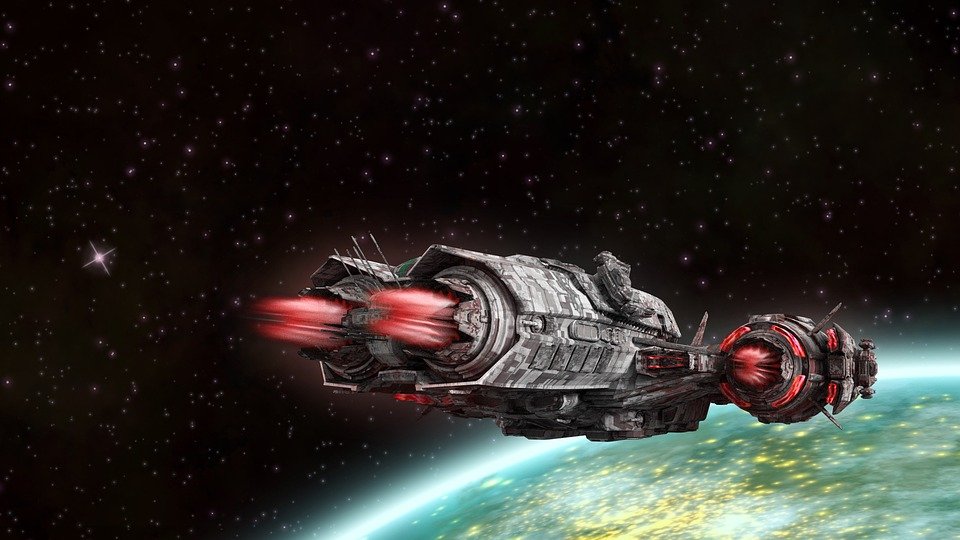Alternative Realities: How Simulation Theory Challenges the Foundations of Energy Conservation
Introduction
In recent years, simulation theory has gained popularity as a plausible explanation for the nature of our reality. According to this theory, our entire existence could be a sophisticated simulation created by a highly advanced civilization. While this concept may seem like science fiction, it raises intriguing questions about the fundamental laws of physics, including the principle of energy conservation. In this article, we will explore how simulation theory challenges the foundations of energy conservation and delves into the possible implications of living in an alternative reality.
The Principle of Energy Conservation
Energy conservation is a fundamental principle in physics that states that energy cannot be created or destroyed; it can only be converted from one form to another. This principle underpins many scientific theories and has been widely accepted as a universal law. However, simulation theory presents a unique challenge to this principle, suggesting that the energy within our simulated reality could be generated or manipulated by the simulators.
The Simulation Hypothesis
The simulation hypothesis proposes that our reality is a computer-generated simulation, similar to the virtual worlds created in video games. Advocates of this theory argue that if an advanced civilization possesses the technology to create such simulations, it is highly probable that they would create numerous simulated universes. These simulations could be used for various purposes, such as entertainment, scientific experiments, or even to study the evolution of intelligent life.
The Energy question
If we consider the possibility that we exist within a simulation, it challenges the concept of energy conservation. In a simulated reality, the laws of physics could be entirely different from those we observe in our everyday lives. The simulators may have the ability to manipulate energy within the simulation, potentially creating or destroying it at will. This brings into question the fundamental nature of energy and whether it truly abides by the laws we have come to understand.
Possible Implications
If simulation theory is correct, it raises profound implications for our understanding of the universe and our place within it. Here are a few possible implications:
1. Origin of the Universe
If our reality is a simulation, it suggests that the origin of our universe may not be a result of a Big Bang or any other cosmological event. Instead, it could simply be the starting point of the simulation. This challenges our current understanding of the universe’s creation and evolution.
2. Limitations of Physical Laws
The laws of physics that we have come to rely on may be specific to the simulation. If this is the case, it could mean that there are other laws governing the true nature of the universe outside the simulation. This implies that our understanding of physics is incomplete, as we are confined to the rules imposed by the simulators.
3. Consciousness and Free Will
Simulation theory also brings into question the nature of consciousness and free will. If our reality is predetermined by the simulators, it challenges the concept of free will and raises concerns about the authenticity of our consciousness. Are we merely characters in a simulation, following a predetermined script?
FAQs
Q: Is simulation theory a widely accepted scientific theory?
A: Simulation theory is still a subject of debate among scientists and philosophers. While it is gaining attention and has some notable proponents, it is not yet widely accepted as a scientific theory.
Q: How can we test the simulation theory?
A: Testing the simulation theory is extremely challenging. Since we are confined within the simulation, it is difficult to gather evidence that definitively proves or disproves its existence. However, some researchers are exploring potential signs of simulation, such as glitches in the laws of physics or patterns in cosmic background radiation.
Q: If our reality is a simulation, does that diminish its significance?
A: The significance of our reality ultimately depends on our perception and experience within it. Whether it is a simulation or not, it remains the only reality we know. The concept of significance is subjective and personal.
Q: Can we ever escape the simulation?
A: Escaping the simulation, if it is indeed a simulation, is currently beyond our technological capabilities. However, some theorists propose that advanced civilizations within the simulation could develop the ability to break free or interact with the simulators.
Q: Does simulation theory have any practical implications?
A: While simulation theory is primarily a philosophical concept, it can inspire new ways of thinking about our universe and the nature of reality. It challenges us to question our assumptions and explore alternative explanations for our existence.
Conclusion
Simulation theory offers a thought-provoking perspective on the nature of our reality and challenges the foundations of energy conservation. While still a subject of debate, it raises profound questions about the origin of the universe, the limitations of physical laws, and the nature of consciousness and free will. Whether or not simulation theory is proven to be true, it encourages us to explore alternative realities and think critically about the fundamental principles that shape our understanding of the universe.

